Recognizing the Myers-Briggs® Personality Types in Childhood
When it comes to type theory, a lot of the descriptions for adult types won’t work as well for children. Children are just starting to develop and as a result, they won’t have steady access to all of their cognitive functions. In early life the dominant function is the most powerful and present in their lives, followed by the auxiliary function as they hit the teen years. In mid-life the tertiary function starts to become stronger and in later life the inferior function starts to develop.
Now ideally I would be able to write a 100-page book on each individual type as a child to help you recognize them. There are so many variables with children and so much depth we could go into on this subject that it would span months of conversation and writing. This article will give you a brief overview of what you can expect in the different types, but be aware that there are always exceptions to these general overviews based on the environment of the child, the type of nurturing they are receiving, and unique traits unrelated to personality type.
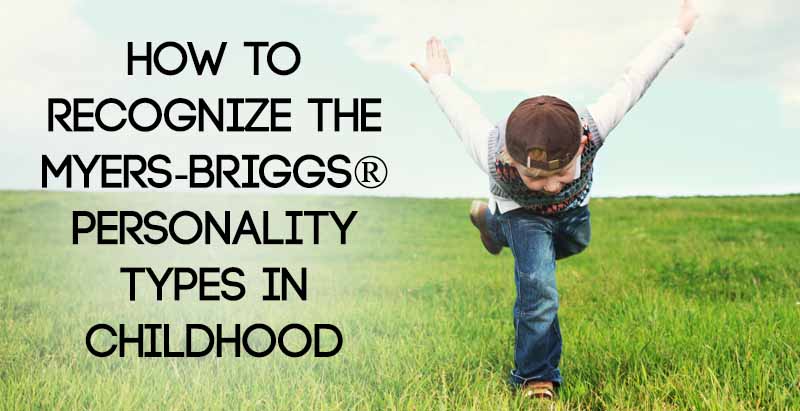
Not sure what your child’s personality type is? Take our new questionnaire here!
An Exception to the Rule:
In families where a child’s natural preferences are stifled in some way, that child can learn to lean on their auxiliary or tertiary function in an effort to “fit in”. This is usually very unhealthy for them because they end up feeling more stressed, more anxious, and unable to relax into their most natural, preferred place. It’s important for parents to recognize their children’s natural gifts and personality traits so that they can show acceptance and understanding to them instead of accidentally stifling who they are!
Let’s Begin!
Quick Guide to The Cognitive Functions:
Introverted Sensing: Focused on memories and comparing and contrasting what happened before with what’s happening now. Detail-oriented. Likes routine and structure. Appreciates reliability and is stressed by change. These children tend to enjoy repeating their favorite processes and traditions. Appreciates facts and concrete data. Dominant function of ISFJs and ISTJs.
Introverted Intuition: Focused on the abstract and unconscious. Always looking at “the big picture”. Asks existential questions and is very stubborn and determined in their “vision”. Appreciates new, novel ideas and perspectives. Is bored with routine. Appreciates theories and abstract meanings. Dominant function of INTJs and INFJs.
Introverted Feeling: Focused on inner values, tastes, and desires. Wants to stay true to one’s self and is proud of uniqueness. Usually empathetic and compassionate, especially to those who seem vulnerable or threatened. Strives to be authentic and sincere. Dominant function of INFPs and ISFPs.
Introverted Thinking: Uses objective logic to fit a subjective, highly detailed internal framework. Wants to know the “truth” without any bias. Internalizes thought process and likes to learn for the sake of learning. Wants to understand how everything works inside and out. Likes taking things apart and putting them back together. Dominant function of ISTPs and INTPs.
Extraverted Sensing: Focused on the objective, literal reality of the outer world. Sees everything in exquisite detail and tries to immerse itself fully in the moment. Takes advantage of current opportunities and realities, making the most of what “is”. Highly in tune with physical reality and one’s own body. Very active and engaged. Appreciates objective facts. Dominant function of ESFPs and ESTPs.
Extraverted Intuition: Focused on abstract connections between objects, people, and things in the environments. Sees potential and theoretical possibilities everywhere. Wants to see everything in terms of how it relates to “the big picture”. Appreciates theories and abstract meanings. Loves to brainstorm and inspire. Dominant function of ENFPs and ENTPs.
Extraverted Feeling: Focused on the values, feelings, and needs of people in the environment. Is very aware of morale and looks to find common ground with others. Tries to maintain harmony and meet other people’s needs. Is interested in building rapport and adhering to one’s own value system. Often friendly and expressive. Dominant function of ESFJs and ENFJs.
Extraverted Thinking: Focused on organizing and running sytems in the outer environment using logical binary judgments. Knows how to take charge and optimize plans to make things run efficiently. Wants everything to be logical, orderly, and effective. Decisive and good at delegating and taking the lead. Dominant function of ENTJs and ESTJs.
The ISTJ Child
ISTJ children are usually detail-oriented, serious, and thoughtful. They pride themselves on having an accurate memory for detail and they aim, above all, to be objective and logical in their decisions. These children gather factual data like a sponge and they enjoy time to think and consider the facts before making a decision. They like an orderly life, one that has a routine, a structure, and one where they know what to expect from one day to the next. ISTJ children often have a favorite meal or a favorite routine that they like to repeat day after day. This routine comforts them and gives them security. It can be very hard on them to be in a family where they have to “go with the flow” and switch gears from one moment to the next.
ISTJ children feel loved when their parents trust them and respect them and give them opportunities to prove themselves. They also greatly value honesty and reliability in their parents. Parents need to be especially careful to keep their promises, show up on time to important events, and stay true to their stand on things. ISTJs tend to be naturally reliable and trustworthy and they value honesty and frankness a great deal.
In school, ISTJs tend to get good grades and care about being competent and performing well. They are fairly competitive academically and tend to do well in math, where they can put their problem-solving skills to the test. They like a structured environment in the classroom and appreciate having time to think things over before responding to questions. Group activities can be frustrating for them if they aren’t given enough space and time to analyze the problems on their own.
Because young ISTJs are still in the beginning stages of development, they can struggle with over-use of their dominant function, Introverted Sensing, and an inability to access their other functions as much as they will later in life. As a result, they can seem overly-cautious and inflexible, only sticking to what they know or trust through personal experience. New situations can frighten them or cause them great anxiety. They may also be very blunt and opinionated in their speech and inadvertently hurt the feelings of other children who are more on the sensitive side. It’s very helpful for young ISTJs to have parents who can rephrase insensitive comments back to them to make friendships smoother.
Related: Can Childhood Trauma Impact Your Personality Type?
The ISFJ Child
ISFJ children are very detail-oriented, loyal, and empathetic children. They are very concerned with the needs of others and they strive to be compassionate, helpful, and consistent in their lives. They like a predictable, structured life where they know what to expect and what’s expected of them.
ISFJ children are usually gentle, reserved, and very attached to their families. They have an acute awareness of textures, tastes, and smells and are usually very clear in those preferences. They may seem like picky eaters, but this is largely because their introverted sensing gives them such a high awareness of taste that even the most minor deviations in flavor can seem like big changes to them. ISFJ children tend to be sensitive to criticism and they usually work hard to avoid it. They try to stay tuned into the needs of others and can appear like “little grown up’s” reliable, responsible, and stable.
ISFJs feel loved when their parents give them affirmation, affection, and stability. They need to know that they can count on their parents to keep their word, show up for important engagements, and follow through on their commitments. A routine in their life helps them to feel safe and comfortable in their surroundings.
In school, ISFJs tend to perform well and they usually care about getting good grades. They are “work before play” children and will usually want to finish their homework quickly before they even think about playing or having free time. In the classroom, they want a sense of structure and clear, sequential guidelines. They tend to perform well in practical skills and history; areas where they can use their skill for remembering facts and also work with their hands to solve a practical problem.
Because young ISFJs are still developing, they can run the risk of overusing their dominant function, Introverted Sensing, without the balance and support of the other three functions. As a result, they can seem inflexible, overly dependent on routine, and anxious and scared by change. They may be so concerned with belonging and acceptance that they work hard to please others without taking time for their own needs and wants. This can lead to resentment and frustration or one-sided relationships where they aren’t getting their needs meet and others are taking advantage of them. It’s important for parents to be aware of this propensity and help them to make a habit of standing up for their own needs and being comfortable saying “no” when other people are asking too much of them.
Related: The Childhood Struggles of ISFJs
The ESTJ Child
ESTJs are usually outgoing, action-oriented, and decisive children. They have an intense practical nature and strong leadership skills. They are usually hard-working, productive, and reliable. Like all SJs, they appreciate routine and structure and like having a plan and schedule for their days. They are extremely logical and objective, working out decisions based on what makes the most practical sense and what seems to have the best cause and effect. Once they make a decision they usually stick with it and are prepared to put in the time and effort to complete projects they’ve started. They are usually organized, efficient, and friendly. Because of their sensing nature, they prefer concrete facts and literal details and are usually adept at remembering them. They are often drawn to sports in school. Through sports they can interact with others, embrace their natural competitiveness, and throw themselves into the physical nature of the game.
ESTJS feel loved when they know their parents trust them, respect them, and give them opportunities to be independent. They also need to know their parents will be fair and reliable; that they’ll keep their word, show up on time, and not show preferential treatment or dishonesty.
In school, ESTJs are usually very competitive and competent. They care about getting good grades and performing well and they are often outspoken in the classroom. They usually perform well in math and practical skills; areas where they can problem solve and apply practical solutions to real-world problems. They enjoy a structured environment with a dependable routine and a clear set of rules.
Because young ESTJs are still developing, they can run the risk of overusing their dominant function, Extraverted Thinking, without the healthy balance and support of their other three cognitive functions. As a result, they can jump to conclusions too quickly without pausing long enough to consider all the details and data. They can also be very quick to point out inefficiencies and flaws in others and the world around them, which can lead to them appearing arrogant or judgmental. They may also become overly concerned with being “in charge” or “the leader”. It’s important for parents to help young ESTJs learn the value of thorough analysis, thinking before speaking, and appreciation the perspectives of other people and letting them lead from time to time.
Related: How to Communicate Effectively with Any Myers-Briggs® Personality Type
The ESFJ Child
ESFJs are expressive, affectionate children who are highly empathetic to the needs and desires of other people. They are usually cuddly and warm, exuding a natural friendliness and gentleness that makes them instantly likeable. They balance their caring, affectionate nature with an eye for detail and a practical mindset. These children are very attuned to the natural world and enjoy tactile play and experiences. Like all SJs, ESFJs enjoy having a routine and structure. They like consistency and knowing what to expect. As a result, they tend to be consistent and reliable themselves, keeping their word and following through on their commitments. They are usually hard working and determined to meet the expectations that other people have of them.
ESFJs feel loved when their families show them affection, listen to them attentively, and assure them of their value. They need affirmation and encouragement and reliability. They want to know that their parents will provide a safe and loving structure for them to thrive in.
In school, ESFJs tend to get good grades and prefer the subjects of math and music. They are usually good at remembering their facts and as such tend to memorize their times tables, spelling words, and history details with accuracy. They like getting their homework done ahead of schedule and can experience a lot of anxiety if they aren’t getting good grades or the subject matter is confusing.
Because young ESFJs are still developing, they can run the risk of overusing their dominant function, Extraverted Feeling, without the balance and support of their other three cognitive functions. This can result in them being overly concerned with the opinions and needs of other people. They may put others before themselves to such an extent that they grow resentful and frustrated. This frustration can be especially taxing if the people they are helping don’t give them any acknowledgment for their efforts. They may also avoid conflict to such a great degree that they keep disagreements and frustration inside which only makes them feel worse. They may also be overly fearful of change when they are young, sticking to a routine even if getting outside of that routine would benefit them. It’s important for parents of young ESFJs to teach them the importance of taking care of themselves, standing up for their own needs, and understanding that conflict and change are natural parts of life and that they don’t need to be feared. Giving them encouragement and role-playing conflict situations can help them to feel more comfortable when those situations present themselves.
Related: 5 Ways to Annoy an ESFJ
The ISTP Child
ISTPs are extremely independent, analytical, and hands-on children. They have a knack for understanding how things work as well as taking things apart and putting them back together. The truth and curiosity guides them and they will sort out any data that seems less-than-accurate. They are detached adventurers, curiously exploring nature and pursuing freedom as much as possible.
As dominant introverted thinking types, ISTPs like to toss ideas back and forth in their minds, and are very concerned with finding the “truth” behind how the world works. They are usually precise and direct in their speech; searching for the most accurate words to use and trying to be as concise as possible. In school, they are often gifted at math and many also enjoy science. Because they are natural problem solvers they enjoy finding practical solutions for just about any problem that presents itself in the moment. They prefer a classroom that has a flexible, open-ended, creative style. Apprehensive of structure and rules, they hate having to sit still and repeat facts all day. They want to work with their hands and see the real-world application of their learning.
ISTPs feel loved when they are accepted and admired for their independence, logical nature, and resourcefulness. They want to feel that their parents trust them, have faith in them, and will give them the freedom they need to test themselves and be independent. They will feel slighted by parents who want to control them, over-structure their time, or “hover” to make sure they’re safe all the time.
ISTPs tend to be independent and adopt a “live and let live” mentality. They aren’t concerned with leading others or telling other people what to do unless they feel that those people are affecting them personally in some way. Inside they hold themselves to a high standard and individualized set of principles, but they care less about the expectations of others. As such, they tend to compete with themselves and care less about getting the perfect grades or impressing their teachers. This can give the mistaken impression that they are underachievers, especially to parents who extravert their thinking process (TJs). ISTPs internalize their thought process and, as such, parents might think they’re not considering something at all simply because they’re analyzing it in the background without making it obvious.
Because young ISTPs are still developing, they may have a tendency to over-use their dominant function, Introverted Thinking, without the support of their other three cognitive functions. As a result, they may come across as isolated, blunt, and indecisive. In their effort to sort through all their data to find the truest answer they may take too long to decide on things. They can also be very direct and blunt in their speech and then withdraw from the conversation, leaving others confused or possibly hurt. They rarely mean any harm, but it’s important for parents to help rephrase insensitive comments back to them so that their friendships can go more smoothly.
Related: 5 Ways to Annoy an ISTP
The ISFP Child
ISFP children are known for being gentle, loving, and quietly passionate children. On the outside they may seem reserved and unassuming, but inside they have a strong set of values and interests, and a thirst for individuality and adventure. These children are usually easy-going and affectionate, and have a knack for finding sweet things to do for other people. They are very affected by conflict and criticism, and prefer all their environments to be as harmonious as possible.
Creative and gentle, the young ISFP enjoys being in touch with nature and experimenting with crafts, art, baking, or any other inventive, hands-on pursuits. They are usually open to change, adaptable, and fond of experience. They are highly aware of the details of their environment and love beauty; anything they can touch, smell, taste, or see that delights their senses is motivating to them.
ISFPs feel loved when their parents try to understand them, listen attentively to them, and show them affection. They need to know that their values are respected, and that they have the freedom to figure out who they are without being forced into a mold by society’s expectations.
In school, ISFPs are usually creative and drawn to subjects like art and science; areas where they can use their hands and experiment with things tangibly. They tend to enjoy an unstructured, creative environment and they tend to dislike being called upon in class in front of other children. They don’t like being “put on the spot”.
Because young ISFPs are still developing their cognitive functions, they may have a tendency to over-use their dominant function, Introverted Feeling, without the balance and support of their other three cognitive functions. This can result in them being isolative and passive-aggressive towards people who don’t understand them or their values. They are generally helpful, supportive, and gentle, but they might also become overly-sensitive and easily offended in early life when their functions are still maturing. It’s important for parents to help them to deal with conflict, voice their concerns instead of holding them in, and deal with criticism without taking it personally. Through gentle guidance and role-playing, parents can help ISFPs maintain composure around less-than-tactful children.
Related: Are You an INFP or an ISFP? Clarifying a Common Mistype
The ESTP Child
ESTPs are charming, adventurous, action-oriented children who are filled with excitement and enthusiasm for the world around them. They are thrill-seekers and risk-takers who aren’t afraid of challenges and enjoy competition. They are very in tune with the present moment, noticing everything in rich detail and always being ready to physically respond to changes in the environment. As such, they love to touch, taste, smell, and sense everything around them. They tend to be wiggly, active children who can’t stand sitting still and always want to get up and explore, touch, climb, or run around.
Young ESTPs tend to be quick on their feet and appear brave and impulsive. They are usually good problem-solvers and are skilled at taking a problem apart and analyzing it from different angles to find the best way to get the problem solved with the least possible effort. They are usually good at finding shortcuts for getting jobs done, and they care little for the routine or bureaucratic way of doing things. In general, they like doing things at the spur of the moment and being spontaneous.
ESTPs feel loved when they are encouraged to test the limits and given freedom and independence to try things their own way. They want parents who feel confident in them, who admire them, and who respect their abilities. Overly-structured or controlling parents will make them feel stifled and frustrated.
In school, ESTPs tend to excel in practical skills and math. They do well in areas where they can work with their hands and learn things through experimentation and trial-and-error. They tend to do well in math because they usually have good problem-solving and analytical skills.
Because young ESTPs are still developing their cognitive functions, they may have a tendency to over-use their dominant function, Extraverted Sensing, without the balance and support of the other three cognitive functions. This can result in them being overly indulgent in sensory pleasures, or continually seeking new thrills without thinking about the long-term consequences. They may also think that they are somehow immune to danger and act too quickly in scenarios that would call for more caution. It’s important for parents to teach young ESTPs to “look before they leap” while simultaneously giving them some safe freedom to challenge themselves.
Another issue ESTPs can face is appearing condescending or arrogant in the midst of debates or arguments. They tend to see debate and analysis as a game to “win” and thus they may rub it in people’s faces when they do win an argument. Over time these tendencies tend to lessen as ESTPs grow and mature and their other functions develop.
Related: What Terrifies Each Myers-Briggs® Personality Type
The ESFP Child
Young ESFPs are warm, enthusiastic, and quick-witted children who have a great desire to make people smile and laugh. They thrive on social interaction and the thrill of new adventures and sensory experiences. They are very in tune with the world around them and live fully “in the moment”, noticing every sight, sound, and detail with startling accuracy. Their awareness of the world around them makes them skilled at multi-tasking and also noticing non-verbal cues in other people. They are usually quick to respond to non-verbal cues and, in turn, have a certain charm and wittiness that works in their favor.
Older ESFP children tend to be very in tune with their values and what they believe is good or bad. They believe in being individualistic and true to themselves, and are quick to spot “phony” or inauthentic behavior. Deeply caring and loyal, they often show their love for others by looking for experiences to share with them or ways to make them laugh or be entertained.
Young ESFPs feel loved when they are affirmed and given affection by their parents. They need to feel that their parents love is unconditional and that they are free to discover their own unique path in life without being forced into a “mold” or a societal expectation. Parents who laugh with them, listen to them, and spend quality time with them make them feel loved.
In school, ESFPs tend to excel in creative, hands-on fields or practical skills. They are often drawn to activities like drama, art, or anything that allows them to create and build and experiment with tangible tools and creative supplies. They are flexible, adaptable children and tend to dislike a very structured lifestyle or a repetitive routine.
Because young ESFPs are still developing, they may rely excessively on their dominant function, Extraverted Sensing, without the healthy support of their other cognitive functions. This can result in young ESFPs being overly-indulgent with food, experiences, or other sensory pleasures. They may also act too quickly, without thinking through the long-term consequences of their actions. While introverted feeling is just starting to show up, it may appear in an unhealthy way and make them seem to judge everything as either “good” or “bad” without looking closely enough. They may also forget to consider the values of other people when they respond to things. It’s important for parents to help young ESFPs to “look before they leap” and test their limits in a safe environment. As with all types, ESFPs tend to gain much healthier control of their functions as they grow and mature.
Related: 5 Ways to Annoy an ESFP
The INTJ Child
Young INTJs are visionary, complex children who have a strong focus on the future and understanding the “big picture” of life. They are always looking ahead and can seem almost completely tuned out of the present moment as they search for meaning and symbolic significance in everything they absorb around them. INTJ children tend to appear much older than their age would suggest because they ask such thought-provoking, existential questions. They appear intense and serious and are not easily swayed by emotions or play that doesn’t challenge them. Drawn to complexity, they will usually challenge themselves to say the most difficult, elaborate words they can think of to fit the situation. They also tend to love books and will enjoy a lot of time to themselves, reading, thinking, and being creative.
Young INTJs are intensely logical; they dislike anything that seems emotionally manipulative or ungrounded in objective logic. Competitive with themselves, their perfectionism can overwhelm them. They tend to get irritated when their plans and projects fail to live up to their vision, yet simultaneously they will refuse help because they have to “do it themselves” to be happy. This can lead to them becoming disgruntled and irritated when they’re young and their vision is much more adult than their years are.
INTJs feel loved when they’re given respect, when they’re allowed to question and speak their mind, and when they have attentive parents who will listen without judging or being exasperated by their often unusual thoughts. They appreciate honest, straightforward parents who respect them enough to tell them the truth and are willing to open their mind to new theories and ideas.
In school, INTJs tend to perform well in science and math. They love anything theoretical or abstract and often enjoy school as long as it isn’t focused on a lot of repetition of facts. They like a steep learning curve and will become quickly bored if they have to repeat the same process very often.
Because young INTJs are still developing, they may rely excessively on their dominant function, Introverted Intuition, without adequate support from their other cognitive functions. This can result in a young INTJ insisting on following his/her vision without any help from anyone else. They may also be overly-perfectionistic, becoming so entrenched in complexity that they lose touch with the present moment or the practical needs of the day. The emergence of extraverted thinking is a good thing, but because it is still relatively immature in childhood it can make them appear somewhat bossy or quick to point out the flaws and inconsistencies of others. They may inadvertently hurt other people’s feelings as a result. Parents can help young INTJs by giving them adequate alone time and encouraging them to “check back in” with the present moment. They can also remind them that it’s okay to ask for help, and that imperfections aren’t always a bad thing. Parents should also rephrase insensitive comments back to their child so that relationships go more smoothly.
Related: The Childhood Struggles of INTJs
The INFJ Child
Young INFJs are imaginative, whimsical children with a strong sense of empathy and compassion for other people. They are drawn to complexity and understanding “the big picture” of life. They tend to need a lot of alone time to process information, think, and separate from sensory stimulation. INFJs (and INTJs) tend to be easily over-stimulated as children and can get anxious and irritated in busy, loud, or overly-sensory environments. They usually have a “vision” of the future and pick up on implications and possibilities that can seem strange to many other people. Their focus on the abstract, symbolic, and existential can be hard for other people to pin down or make sense of. They will ask questions that seem too complex or even inappropriate for children their age as they try to make sense of life and what everything means and how it’s all tied together.
INFJs are usually warm children who care about how other people feel. They hate conflict and will do whatever they can to maintain harmony, even if it means putting their own needs last. If an atmosphere is tense they will often try to fix it or leave so that they don’t have to absorb negative emotions.
Young INFJs feel loved when their questions are answered, when they are listened to, and when they are given affirmation and encouragement in their unique dreams. They need gentle guidance and regular reminders of their parents dedication to them.
In school, INFJs tend to excel in art, English, and music. They prefer an open-ended, creative environment where they can regularly be exposed to new ideas and challenges. Repetition of facts and details can bore them and they may “tune out” of environments where a focus on repetition is the norm.
Young INFJs are still developing all their cognitive functions, and as a result they may over-use their dominant function without the mature support of their other cognitive functions. This can result in them focusing exclusively on their vision without paying attention to current details or needs of the present moment. They can be extremely perfectionistic, insisting on completing their idea or project perfectly and getting angry or irritated when their aspirations don’t match their current skill set or age limitations. The emergence of extraverted feeling is a good thing, but because it’s still relatively immature in childhood, they can appear overly-sensitive, or they may take on other people’s feelings and expectations and lose themselves in the process. It’s important for parents to teach young INFJs that imperfections are beautiful, that they need to take regular breaks to “tune in” to the present moment, and that they need to be aware of their own desires and needs and not let other people’s moods overtake them.
Want a comprehensive guide to the INFJ personality type? Check out my eBook, The INFJ – Understanding the Mystic.
Related: The Struggles of Being an INFJ Child
The ENTJ Child
Young ENTJs are visionary, goal-oriented, and determined children with an eye for future possibility and a knack for swift, strategic thinking. They approach life with a strong-willed determination to “take life by the horns” and achieve great things. They are usually organized, planful, and hard-working.
In everything they do, ENTJs are driven to be “the best”. They strive to prove themselves competent and are itching for independence at a much earlier age than many of their peers. Competitive in just about every endeavor they undertake, they play to win. More than many other types, they enjoy challenging authorities, even if (or especially if) this flies in the face social norms and traditions. They can appear debative to parents, teachers, and other children as they naturally bristle at rules they see as outdated or illogical.
ENTJs feel loved when they are respected for their unique perspectives and their competence. They like to be given power to take charge of their lives and prove themselves to their parents, and they need to know that their parents believe in them and have faith in their abilities. They also greatly value honesty and loyalty and will bristle at parents who are manipulative, wishy-washy, or inconsistent.
In school, ENTJs tend to perform well in English and science. Statistically, they get above-average grades and are naturally competitive in the classroom. That said, they will quickly tire of an atmosphere that is very repetitive and focuses more on memorization than innovation and new ideas. They enjoy structure, but they like a steep learning curve where thinking outside the box is encouraged and challenges are aplenty.
Young ENTJs are still developing all their cognitive functions, and as a result they may overuse their dominant function, Extraverted Thinking, without proper support from their other cognitive functions. This may result in them appearing dominating, controlling, or rigid in their thinking. They can have difficulty relating to emotional sensitivities in others and may inadvertently give off a vibe that says “just get over it” to people in emotional situations. Parents can help young ENTJs by teaching them the value of emotional intelligence and rephrasing insensitive comments back to them so that they can be more understanding with people who process things differently than they do.
Related: 10 Things You’ll Relate to if You’re An ENTJ
The ENFJ Child
Young ENFJs are warm, enthusiastic, and empathetic children who are very concerned with the needs, wants, and desires of other people. They are usually highly in tune to the emotional atmosphere around them and have a knack for making people feel at ease and accepted. Communication comes naturally to them and they make excellent “hosts” or “hostesses”, no matter their age. They want to feel camaraderie with others and a sense of intimate “oneness” so they look for rapport, and they will disclose information about themselves to help other children open up to them and connect with them. Sensitive to conflict, they will do just about anything to resolve terse situations as quickly as possible. The only problem with this is sometimes they may forget their own needs and values in an effort to make peace.
ENFJs are usually focused on the future and have strong insights into how things are likely to play out; in early life this aptitude is usually less obvious, but as they get older and especially as they enter the teen years this strength usually becomes more noticeable. They often get a sense that something is or isn’t going to happen and sometimes a whole solution to a problem will present itself seemingly out of nowhere.
Young ENFJs feel loved when they have their values and feelings validated, and when their efforts to help others are acknowledged. They need affection and assurance and loyalty from their loved ones. Direct, blunt criticism can be taken very hard by ENFJs, because they usually hold themselves to very high standards and take criticism personally. It’s important for parents to balance criticism with praise for what their child does well.
In school ENFJs tend to excel in art, English, and music. Statistically, they get above-average grades and are very focused on meeting the expectations of their parents and teachers. That said, they dislike a very repetitive routine and will also bristle at teachers who seem very direct and critical. A classroom atmosphere that isn’t harmonious can greatly hamper their ability to think as clearly as they’d like to.
Young ENFJs are still developing all their cognitive functions, and as a result they may overuse their dominant function, Extraverted Feeling, without proper support from their other cognitive functions. This may result in them feeling too responsible for the cares of other people. They may lose themselves in what other people need and end up wearing themselves out. It can be difficult for them to express their own needs and desires, and that’s where the help of a trusted parent comes in. Parents can help young ENFJs to realize their own values, their own tastes and desires, and they can help them to say “no” to things that go against their own desires. They can also help them to see that conflict is sometimes an essential part of life and can lead to personal growth if they allow themselves to learn through it and stand up for what they believe in.
Related: 10 Things You’ll Relate To If You’re An ENFJ
The INTP Child
Young INTPs are known for their keen sense of logic and fairness. These independent, analytical children are always trying to discern what the truth is based on logical principles. They aren’t afraid to debate or argue anything that seems untruthful or illogical, especially if it affects them in some way (like a rule or tradition they have to follow). Young INTPs are good at thinking outside the box, seeing creative and original ideas, and curiously following their interests in any number of directions. They tend to start a lot of projects, but they also tend to struggle with finishing them. They want freedom, mental challenges, and a constant stream of mind-bending ideas and facts to explore.
INTP children are usually more private than most children; they feel at home in their own mind and often find ways to get away by themselves to read, think, or play independently. As they get older they often enjoy riding their bikes or finding solitary activities that give them a sense of freedom. They are adaptable children and they usually like a relatively unstructured environment. In their play they like to take things apart and put them back together; this can be anything from legos, to DVD players, to ideas and theories. They’re interested in finding out the core of how everything through experience and analysis.
Young INTPs feel loved when their parents accept them for the unique people they are. INTPs are often seen as unusual children or “tough nuts” because of their tendency to debate rules and traditions. They are also not the most demonstrative children in many cases, and as a result parents can think they just don’t care when in fact they do care very much. Young INTPs respond very well to written affirmations of love that they can read privately, and they also respond well to specific compliments. The loyalty and steadfast affection of their parents means a great deal to them.
In school, INTPs tend to get good grades if they care about their classes. They are motivated by an internal set of standards, however, and they usually care far less about good grades and impressing their teachers and parents than they are about doing what seems important to them. That said, they usually excel in math, art, and science. They are usually very creative and enjoy a steep learning curve. Classes that challenge the INTP mentally, that allow for creative problem solving and even some healthy debate tend to inspire them.
Young INTPs are still developing all their cognitive functions, and as a result they may overuse their dominant function, Introverted Thinking, without proper support from their other cognitive functions. This may result in them getting lost in analysis at a time when action is required. This can also result in them being overly critical and seeing flaws in just about everyone’s logic, even if perhaps they’re missing part of the data themselves. The emergence of Extraverted Intuition is helpful in balancing out their introverted thinking, but because it is just starting to develop it is relatively immature. This may result in the INTP child exploring idea after idea and having trouble finishing anything. It’s important for parents to help young INTPs stay on task by offering visual reminders. It’s also important for them to rephrase insensitive comments back to young INTPs so that they know how to say things more tactfully. Parents can also help young INTPs to understand when it’s okay to debate and critique, and when it’s better not to say anything.
Related: The Childhood Struggles of INTPs
The INFP Child
Young INFPs are known for being idealistic, imaginative, sincere, and deeply sensitive. These children believe that everything is significant and has meaning and personal impact. While they may appear mysterious and reserved on the outside, they are usually brimming with imagination and passion on the inside. They are very concerned for the people around them and are often drawn to animals and children younger than themselves, with whom they are very nurturing and affectionate. Their imagination guides them, and they’ll often be found making up stories or dreaming up possibilities that are unusual and whimsical. They tend to develop language skills early and will use these skills to write down their stories or create highly detailed and elaborate fantasy worlds.
Behaviorally, INFPs are usually easy-going and good-natured. They care a lot about sincerity and being true to themselves, and enjoy being “different” from the crowd. Having inner harmony and doing what’s right for them is essential. They aren’t especially aware of time as children and can struggle to meet deadlines or remember responsibilities like making their bed in the morning or combing their hair. They like to mix work with play and when sent to clean their room may find themselves lost in a creative daydream or playing with their toys, having forgotten about the task they were given.
INFPs feel loved when they feel understood and accepted by their parents. When their parents listen attentively to them, respect their values and imagination and show a keen interest in their beliefs. They want to know that they have their parents unconditional love and support, even if they choose a life path that is far different than what their parents expected.
In school, INFPs tend to be highly creative and skilled at art, English, or music. They may struggle with completing homework on time, but they genuinely want to learn. For these types, a flexible approach to education is ideal. They prefer unstructured, creative classrooms where thinking outside the box and exploring new theories or creative options is encouraged. Highly-structured “one-size-fits-all” environments bore them, and they get bored if a lot of rote memorization and repetition is encouraged.
Young INFPs are still developing all their cognitive functions, and as a result they may overuse their dominant function, Introverted Feeling, without proper support from their other cognitive functions. This may result in them digging in their heels in support of certain ideals and simply shutting out alternate perspectives or people who oppose those values or ideals. This can also result in them seeming overly sensitive and easy to offend. This tends to change as they grow and mature, because the maturity of introverted feeling, along with intuition, sensing, and thinking all create a balance where they are more likely to be in tune with others, see numerous perspectives, and be more balanced in their mindset. Parents of young INFPs can help them during this growing up phase by modeling how to set and meet goals, see things from various perspectives, and by encouraging them to express their feelings, if not in words, then in drawings so that they can give voice to what’s going on inside of them.
Related: The Childhood Struggles of INFPs
The ENTP Child
Young ENTPs are known for their enthusiasm, their boundless ideas, and their outside-the-box thinking. Energetic and charismatic, they have a contagious energy and love to ask questions and explore numerous ideas and possibilities out loud. They seem to see everything around them in terms of what it “could be” and thus are very imaginative and inspiring. More focused on the future than the present, they are less concerned with what “is” than what’s something’s potential is. They are usually very creative and quick to pick up new and unusual words, they’ll use these words to create fascinating stories which they love to tell to their playmates or anyone willing to listen.
Young ENTPs tend to have numerous interests and like to be involved in lots of activities and creative pursuits. They like having a lot of friends and meeting people from all walks of life and diverse backgrounds. They aren’t usually into “cliques” because they find children who are all very similar to be under-stimulating after a while. New and novel ideas, people, and theories are always fascinating to them.
ENTPs feel loved when their parents encourage their ideas and notice their creativity, competence, and resourcefulness. They want their divergent and out-of-the-box thinking listened to and respected, and they will get frustrated if parents instantly shut them down when their ideas defy social norms or traditions. They also want to feel that their parents trust them with freedom and give them opportunities to prove their independence and self-sufficiency.
In school, ENTPs view their education as an excellent opportunity to compete with themselves and others. They tend to enjoy science and art; areas where they can think creatively and experiment. If they feel mentally stimulated and challenged they tend to do very well in math as well; especially when it comes to the more conceptual, abstract methods employed in high-school math, algebra, and geometry. If they find their classroom setting stifling, overly-structured, and repetitive they may show little interest in their studies.
Young ENTPs are still developing all their cognitive functions, and as a result they may overuse their dominant function, Extraverted Intuition, without proper support from their other cognitive functions. This may result in them getting too caught up in flights of ideas that they struggle with completing projects. They can also get stuck imagining various alternatives and arguing those alternatives without balancing those ideas with the support of their auxiliary introverted thinking. As they get older and their other functions mature this tendency tends to balance itself out more. Parents can help young ENTPs by giving them visual and verbal reminders of their deadlines and helping them tap into their introverted thinking when the situation calls for critical thinking instead of more possibility-seeking.
Related: 10 Things That Terrify ENTPs
The ENFP Child
Young ENFPs are known for being enthusiastic, warm, open-minded children. These types innately see possibilities and opportunities beyond the ordinary and have a creative perspective into connections between people and things and relationships. They are very future-oriented and excited by anything new or novel that could happen someday. In fact, sometimes they enjoy thinking about future possibilities more than actually experiencing them. Because they’re so inherently focused on looking forward, the present moment can be difficult for them to tune into completely.
With the help of their auxiliary feeling function, ENFPs are often warm and empathetic children. They have a “live and let live” mentality and tend to be accepting and open-minded of others, unless those children violate their values in some way. Misfits appeal to their individualistic nature and they tend to attract people from all walks of life. They are often champions of the “underdogs” and don’t mind challenging popular opinions with new perspectives, angles, and theories.
ENFP children feel loved when their parents support their ideas, their feelings, and listen attentively to them. They will enjoy sharing their ideas with enthusiastic and open-minded parents and they appreciate genuine encouragement and praise. Unconditional love is vital for these children, and at the same time they can find comfort in parents who are able to help them in areas where they tend to naturally struggle.
In school, ENFPs are usually drawn to artistic and creative pursuits. Art, music, dance, drama, all these things are great fun to young ENFPs. Anything that allows them to experiment creatively or has an element of humor or fantasy is thrilling to them. They tend to pursue a variety of subjects rather than settle on one specialization. They like classrooms where brainstorming and discussion are the norm. Highly structured or rule-driven environments tend to bother them. Classrooms where repetition and testing are the norm can stifle their natural curiosity and love of learning.
Young ENFPs are still developing all their cognitive functions, and as a result they may overuse their dominant function, Extraverted Intuition, without proper support from their other cognitive functions. This may result in them getting too caught up in flights of ideas that they struggle with completing projects. They can also get stuck imagining a “perfect” future or potential that they lose sight of what they could be enjoying right now. When they come back to hard reality they can feel disappointed and disillusioned. It’s important for parents to help them remember what needs to be done and also to stay tuned into the present moment from time to time and take time to “stop and smell the roses” that already exist instead of the ones that could exist someday. As ENFPs grow and develop their other functions will mature and these issues tend to be less of a problem.
Related: 10 Things That Terrify ENFPs
What Are Your Thoughts?
These are really very brief descriptions and there’s so much more that could be said about each personality type. What has your experience been growing up as your type? Share your thoughts and experiences in the comments!
Find out your child’s personality type in our new questionnaire!
Learn How to Be an Expert at Typing Children!
Join me for “Parenting by Personality” an online course designed to show YOU how to type your children, work with their learning styles, and avoid the roadblocks and stressors that so many parents face! Click Here for more information.
This article contains affiliate links. I only recommend products I truly believe in.
Get Your Free eBook!

Subscribe to our newsletter and get an eBook packed with powerful parenting tips for each personality type! Enjoy 28 beautifully illustrated pages exploring the needs and strengths of all 16 personality types in childhood.


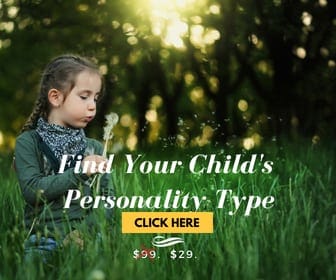
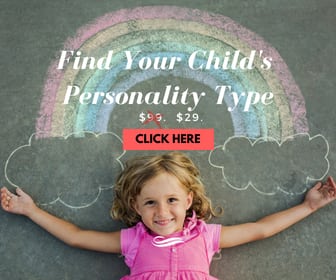

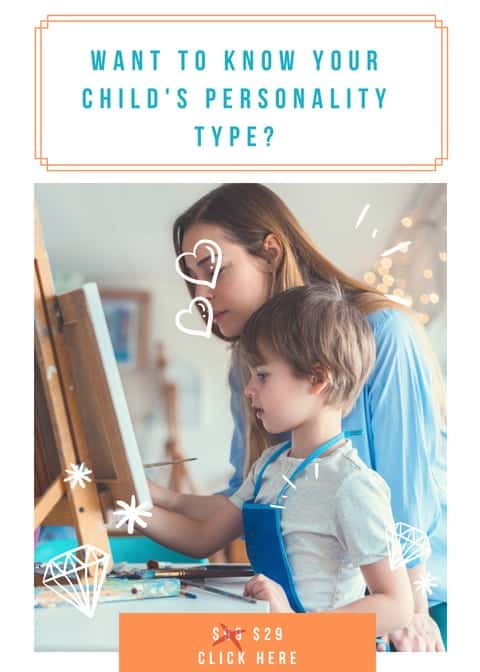



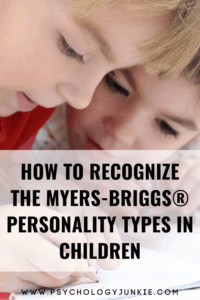



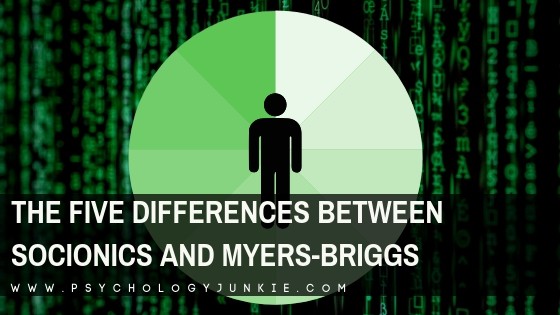


Thank you for this! It is super helpful for counseling children. (I made my own child-friendly 12-question assessment, which so far has returned nearly 100% satisfied children when reviewing tools from the MBTI site, the exception, a 7-year-old because I had trouble finding adjectives she could understand though now I can refer to your article!)
I’m so glad you enjoyed it! Thank you for your input:) It’s nice to know it’s working from someone else who has worked with children 🙂
Where can I find you child-friendly version. I would love our teachers to understand the students better.
Hi Susan, thank you for such a great article!
Most of the information I found on the Internet says that you cannot change personality type. That when it looks like it, what you are doing is actually accessing the shadow functions. However, it was refreshing to read in your article that “In families where a child’s natural preferences are stifled in some way, that child can learn to lean on their auxiliary or tertiary function in an effort to “fit in”. This is usually very unhealthy…”
I am pretty sure when I was a child I was an ESTP while as an adult I turned up to become an INTJ.
My question is, is there any research that proves that people don’t really change personality or vice-versa?
Thanks. I’m an istp girl and it’s similar to how I behaved before. However, I did not want to be rude or offend others at all. I appreciate the kindness. I was also very sensitive to unjustified rudeness. Sometimes I come across descriptions of istp as “insensitive”, but in fact all of us, healthy people, feel. (either this is a stereotype, or I myself came up with what istp is considered to be such). Also I sometimes saw the diagram on which in istp there is no fi at all, and other functions little by little are. I believe that we all have all 8 functions, just our type is functions in what we are most comfortable and most natural. And if thinking prevails over feeling, does that mean that a person is callous? I think this means that this person feels the same way, only the world perceives more through thinking (in terms of frequency of use and naturalness of installation). Maybe I’m so sensitive to inaccuracies about feeling because it’s my 4th. To think that t-types do not feel is the same as to think that f-types do not think. Of course, Jung seemed to separate affect (emotion) from feeling, but still. I don’t know, but here it is. I hope everything is readable here, because I’m not a native speaker. Stereotypes are, of course, just stereotypes, but when I read something similar about “s” types have lower intelligence or lower creativity, it seems somehow inaccurate to me. Yes, n-types are indeed more prone to ideas and abstraction by nature, but that does not mean that they are the only ones and it is a measure of intelligence of certain person and so on. Also, what I used to love reading, drawing, making up stories makes me confused: is it somehow related to cognitive functions. I think you have a deep understanding of type theory, so I’ll be glad to hear your response!
best regards
I’m a teacher and I think that having an idea of students’ personality types/traits would really help me to be more able to help them. However, it takes quite some time to be able to learn these traits in each student. Half of the school year can be lost by the time I really get to know all of my students. Do you have any suggestions for how I can accomplish this quickly so that so much valuable time is not lost? Would having the parents complete the childhood test and forwarding me the results work?
“They can have difficulty relating to emotional sensitivities in others and may inadvertently give off a vibe that says “just get over it” to people in emotional situations.”
“Inadvertently.” 😂 Spoiler alert, it’s not inadvertent with all ENTJlets.
I hear a lot from high Ni users about having their Ni stifled, but I’m an unusual(?) case of having had my Te stifled and my Ni pretty much left alone to do as it pleased. As a result, most descriptions of INTJs fit me as well (except for the parts about needing alone time and hating noise), but without the kick of “that’s me!” that the ENTJ description give.